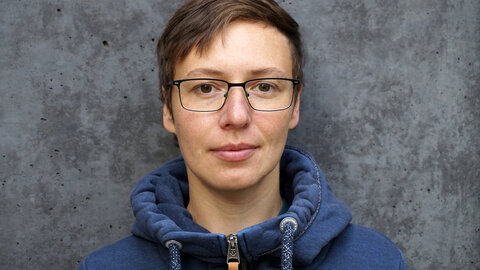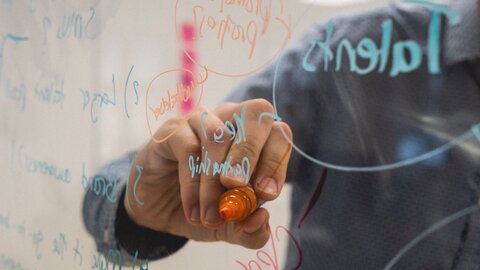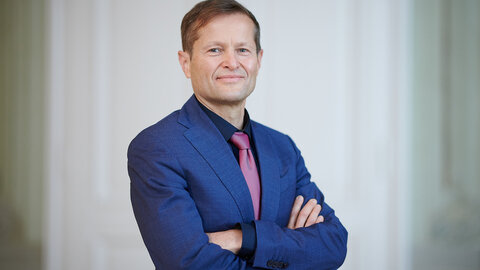Top Research in Austria: 147 New Projects Ready to Launch

In its most recent meeting, the FWF Board launched 147 projects, amounting to a total funding volume of €48.2 million. A total of 749 applications amounting to a total volume of €323.6 million were submitted.
Please click here for an overview of all newly approved research projects.
Statistics on the most recent FWF Board meeting are available online here.
The majority of the most recent approvals are Stand-Alone Projects, with a total of 40 projects amounting to a funding volume of €15 million.
1000 Ideas
The 1000 Ideas Programme was created to fund completely innovative, daring, or particularly original research ideas. A total of 186 researchers submitted their ideas for the most recent round, applying for a total volume of €25.7 million. A total of 158 project ideas with a volume of €21.9 million were then subjected to the peer review process, in which an international jury reviewed the selected applications in a double-blind procedure. The final decision was made by the members of the FWF Board. Twenty projects at 13 universities and research institutions with a funding volume of €2.9 million will now be launched in the 1000 Ideas Programme. Two of these projects will be implemented as part of the Quantum Austria Funding Initiative, which focuses on quantum research and quantum technology.
Career & mobility
The FWF’s ESPRIT career advancement programme is aimed at highly qualified postdocs in all disciplines. 46 applications, representing a total of €13.8 million in funding, were addressed at the last FWF Board meeting. 15 excellently rated projects with a funding volume of €4.6 million were selected for funding. Two of these projects will be implemented as part of the Quantum Austria Funding Initiative, as well.
42 applications worth a total of €13 million were submitted for Richter Grants, which go to female researchers at the senior postdoc level. €3.7 million in funding was approved, resulting in an approval rate of 28.3%.
With its Schrödinger outgoing programme, the FWF supports mainly young researchers who want to gain experience abroad at top research institutions. The co-financed return phase contributes to stopping “brain drain” by ensuring that the knowledge and experience gained abroad helps advance the researchers’ careers in Austria. At the June meeting, four applications amounting to €700,000 received funding (approval rate: 41.7%).
Microbiologist Christa Schleper is the 2022 Wittgenstein Award winner
A further decision made at the June Board meeting was the winner of Austria’s largest monetary research award: Microbiologist Christa Schleper from the University of Vienna was selected by the international START/Wittgenstein jury – which includes two Nobel laureates – for the 2022 Wittgenstein Award. Since the beginning of her career, Schleper has been working on archaea – these microorganisms are, together with bacteria, among the first living things on earth. She plans to use the funding provided by the FWF Wittgenstein Award to expand basic research into newly discovered archaea and to investigate not only their evolutionary significance, but also their role in the ecosystem. Her findings will help us better understand the role of microorganisms in the soil and how they can be used in the future, for example, to develop more sustainable agriculture. Schleper was selected for the award out of 26 nominations and will receive a €1.5 million grant to further develop her world-class research over the next five years.
Please click here to read an interview with Christa Schleper, watch a short video and click through our gallery of pictures of the award winner and the award ceremony with Federal Minister Martin Polaschek and FWF President Christof Gattringer.
Funding excellence: Up to €1.2 million each awarded to six START Award winners
The START/Wittgenstein jury also recommended six top young researchers for START Awards. Each of the six projects, three of which are headed by women, will be funded with up to €1.2 million. The START Award winners are William Barton (Ludwig Boltzmann Institute for Neo-Latin Studies), Elfriede Dall (University of Salzburg, Department of Biosciences and Medical Biology), Sandra Müller (TU Wien, Institute of Discrete Mathematics and Geometry), Marcus Ossiander (Graz University of Technology, Institute of Experimental Physics), Stefan Pflügl (TU Wien, Institute of Chemical, Environmental and Bioscience Engineering), and Petra Sumasgutner (University of Vienna, Konrad Lorenz Research Center).
Please click here to read interviews with the START Award winners.
Eleven Teams Compete in Final Round for Austria’s New Research Clusters
The second round of the selection procedure for Austria’s new Clusters of Excellence grant has now been concluded: Eleven research teams have qualified for the final round, based on the outstanding quality of their research. The FWF Board’s selection is largely determined by the recommendations of the 16-member international jury that evaluated the teams’ potential for innovation and scientific excellence on the basis of peer reviews from around the world.
Each of the 35 pre-proposals submitted was evaluated in writing by four international reviewers. The FWF worked together with the European Science Foundation to nominate reviewers in an effort to avoid conflicts of interest on the national level right from the beginning. The third round of the award procedure – a review of the full proposals and a hearing in March 2023 – will ultimately decide who receives a grant. The first clusters will be able to begin their research starting in June 2023.
For more information about the jury and an overview of the 11 teams in the final round, please click here.
The FWF Board
The FWF Board consists of the Executive Board and the reporters of the FWF. Its main responsibility is making funding decisions for research projects. The current legislative period of the Board ends in October 2023.
All members of the FWF Board can be found here.





